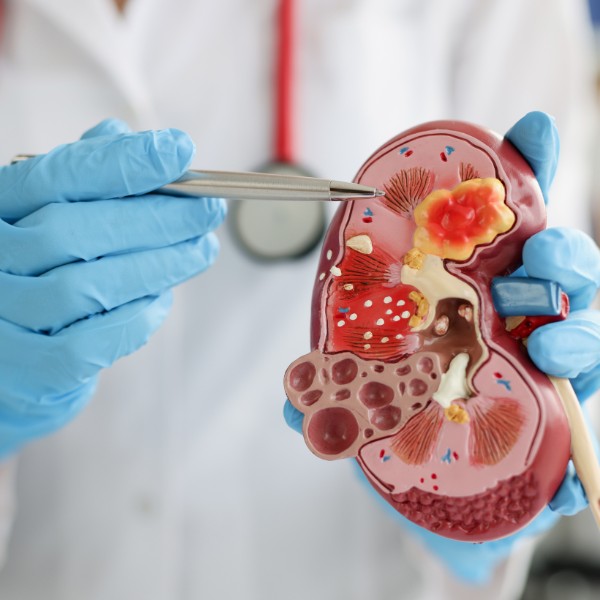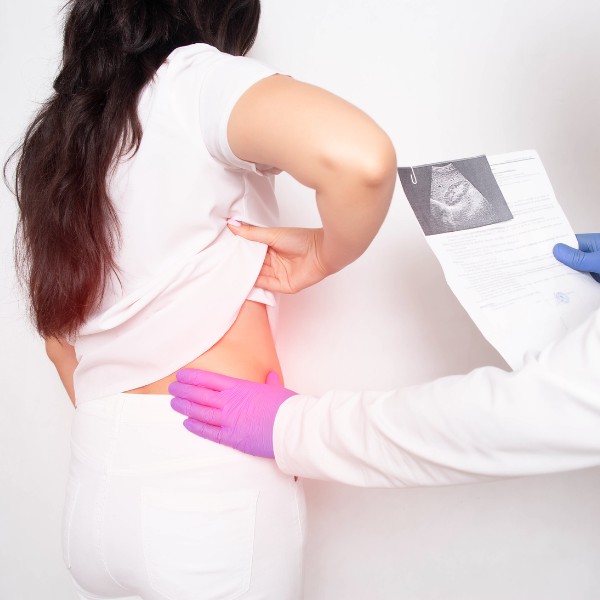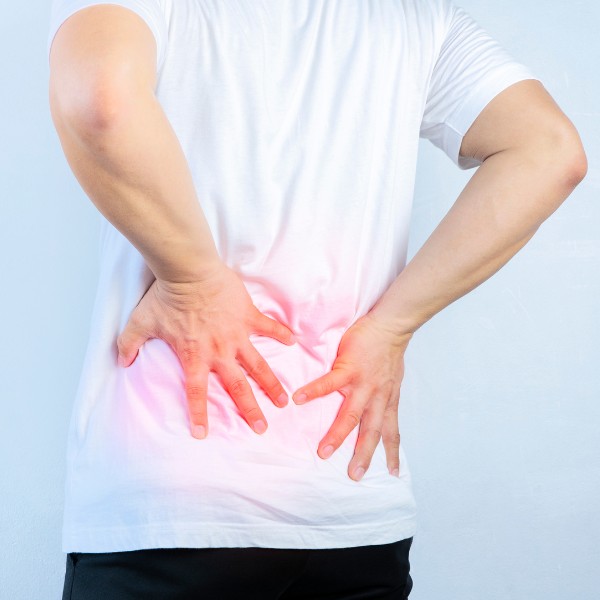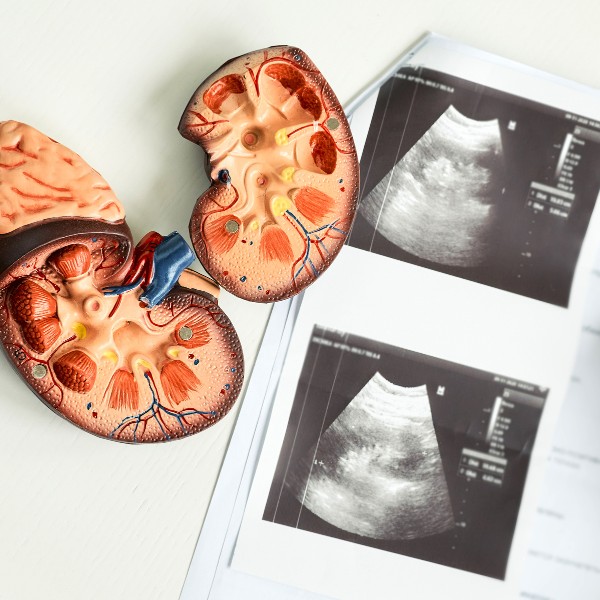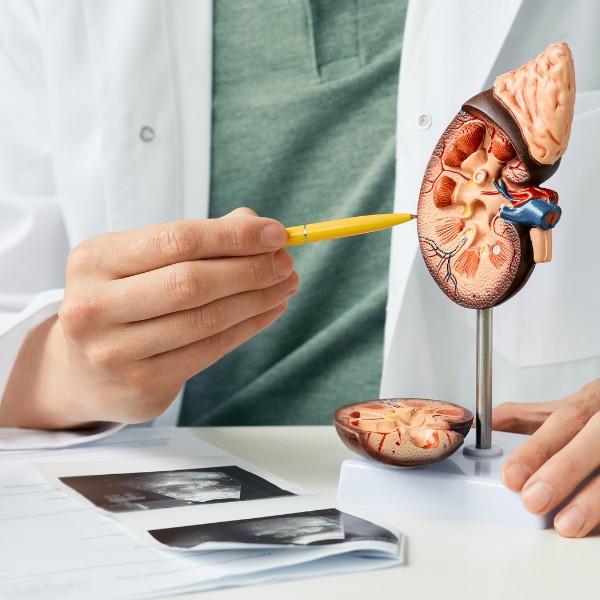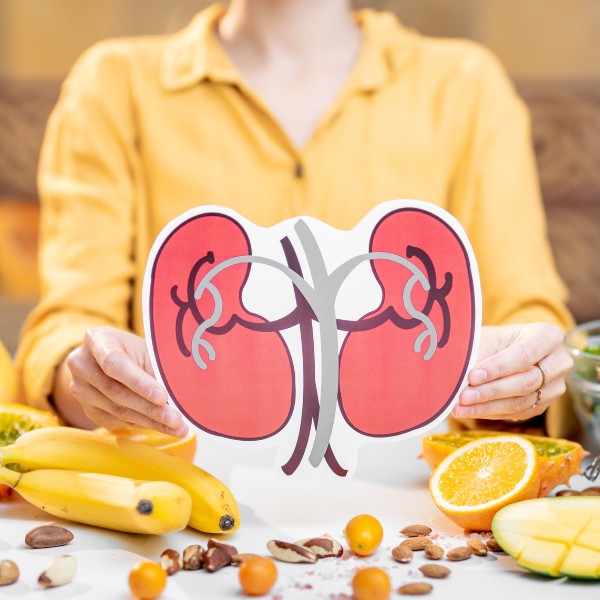KIDNEY STONES
What are Kidney Stones?
Kidney stones are solid, harmful masses that develop in the urinary tract. They are formed from salt, minerals that are filtered by the kidney. Those minerals are natrium, calcium, potassium, oxalates, phosphates, and uric acid cysteine.
A healthy person has an acid pH in urine. If it becomes more neutral or basic or the amount of minerals is dysregulated, they crystalize, and stones develop. If this situation lasts a long time, the crystals become bigger, they adhere to urinary tract cells, and there may be difficulty with urine flow.
They may develop in each part of the urinary tract, most often in renal calyxes and renal pelvic, and less frequently in the urinary bladder or urethra
Symptoms of Kidney Stones
Small kidney stones may not give any symptoms. Tiny crystals may be found in general urine tests.
People feel excruciating pain when kidney stones gain size to blocage the urine tract. It radiates from the lower part of the back to the pelvis, groins, and genital area.
Other common symptoms may be high fever, chills, sweating, nausea, vomiting, constant feeling you need to urinate, a small amount of giving urine, or even total blockage or change of color. In extreme cases, sepsis may develop, or kidneys may be seriously injured.
Causes of Kidney Stones
They occur in 1- 3 % of society. The most at risk are people in the age between 30 and 50 age, especially men. During their whole life, it occurs in 10% of men and 5 % of women.
Kidney stones are also most common in the Southern part of the US because of dry heat combined with an inappropriate diet.
Other risk factors are:
Family history of kidney stones inappropriate diet- lack of incoming fluids, a diet rich in meat, rhubarb, spinach, roots, chocolate, nuts, coffee, and tea, comorbidities: hyperactivity of parathyroid glands, infections of the urinary tract, tuberculosis, sarcoidosis, metastases to bones, chronic diarrhea, gout medications: too many supplements of calcium, vitamin C, D, thiazides, sulphonamides, HIV treatment obstacles of urine flow: overgrowth of prostatic gland, narrowing of the urinary tract.
What are the most common types of kidney stones?
-
- Calcium stones are the most common type. They occur in people with overdosing on calcium and vitamin D supplement.
- Uric acid stones develop in people with a high level of urine acid in the blood, f.eg. Patients with gout.
- Cystine stones are commonly seen in a patient with a family history of kidney stones.
- Struvite stones occur in people with often infections of the urinary tract.
How can kidney stones be diagnosed?
-
- According to symptoms and after examination, the doctor can order imaging techniques such as USG,
- CT scan or X-ray. It helps to localize stones in the urinary tract. Results determine whether a stone with pass through or whether there is a need for intervention.
What are available methods of treatment?
Small stones under 1 cm in diameter can pass through the urinary tract naturally. The doctor will order you to drink many fluids. Sometimes muscle relaxation medications and painkillers may be requested to relieve the patient. More giant stones need special operations.
ESWL (Extracorporeal Shock-Wave Lithotripsy) uses a particular machine that generates extracorporeal ultrasound waves. They crush stones into many smaller pieces, which helps them go through naturally.
URSL (Ureterorenoscopic Lithotripsy) is a procedure using a ureterorenoscopy. It is a small tube-like device with a camera. It is put in the urinary tract, and the stone is visualized and localized during the screening. Then it can be removed mechanically or shot with a laser into many smaller released parts.
PCNL (Percutaneous Nephrolithotomy) is a procedure that requires an incision in the pelvic kidney area. A small tube is inserted through this incision. The stone is removed and crushed and then released in smaller parts.
Preventing Kidney Stones
If you are in a group at risk of kidney stones or have had them in the past, here is some advice that may help you avoid the following incident.
-
- Drink more water, and it will help to dilute your urine.
- Reduce the amount of tea and coffee. Give up drinking cola, which contains phosphoric acids.
- You should reduce calcium supplementation and use salt and salty food if you have calcium stones.
- The doctor may prescribe diuretics to excess less calcium with urine or potassium citrate to facilitate calcium secretion.
- Give up unnecessary vitamin C and D supplements.
- If you have uric acid stones, reduce your intake of meat and fish. It also may help with cystine stones.
- If you have oxalate stones give up chocolate nuts, rhubarb, spinach, and dark green vegetables.
- Supplementation of the B6 vitamin will help reduce oxalate levels.
- If you have struvite stones, a urine culture may be needed. They are formed during urinary tract infections.

